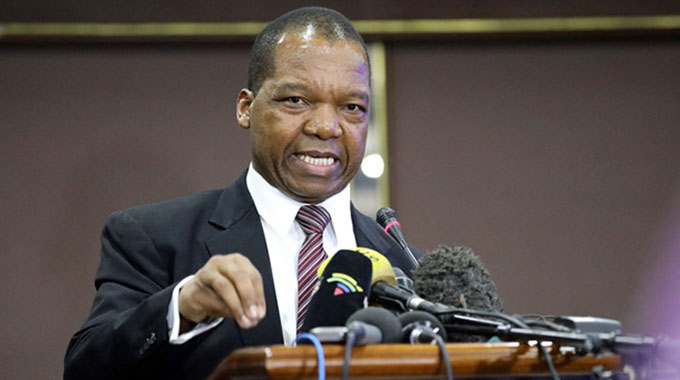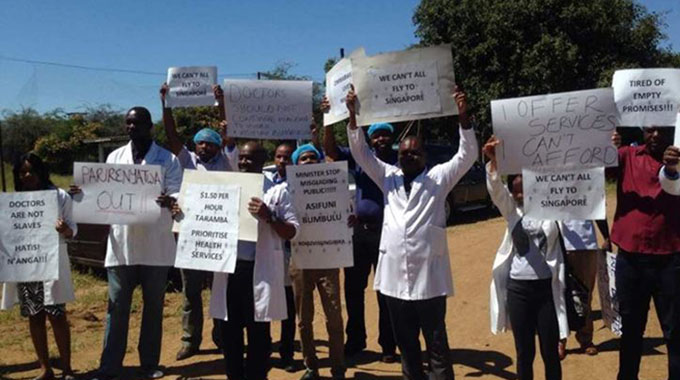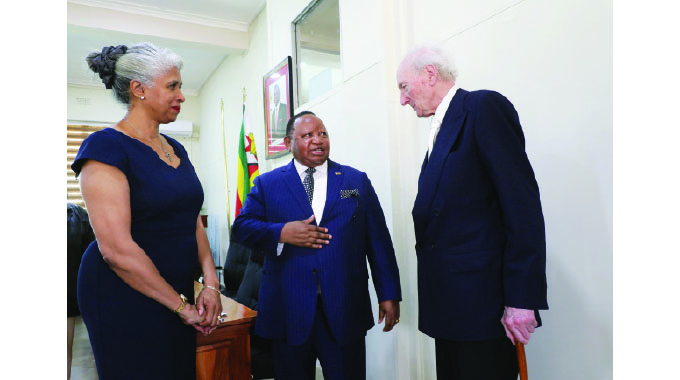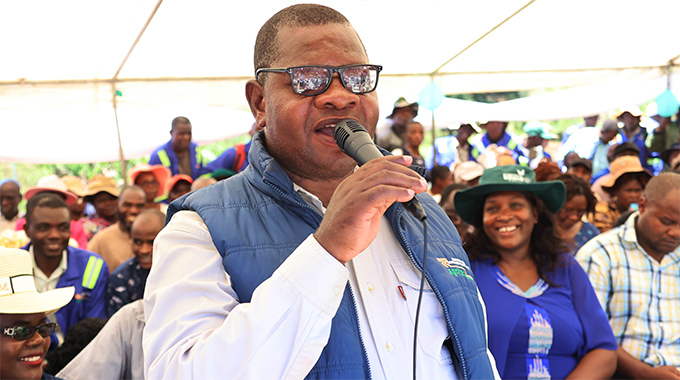New notes stimulate excitement

Blessings Chidakwa and Wallace Ruzvidzo
TUESDAY’S announcement that new notes will be fed into the market in the next two weeks has excited retailers who trade exclusively in cash, and pushed the parallel market rate for foreign currency marginally down as traders adopted a wait-and-see approach. Black market forex rates tumbled to US$1:$20 from US$1:$23, as people were hesitant to part ways with their money.
Reserve Bank of Zimbabwe (RBZ) Governor Dr John Mangudya on Tuesday indicated that he will be issuing new $5 notes and $2 coins, to cushion citizens who are being fleeced of their hard earned money by unscrupulous retailers who charge premiums on other forms of payment other than cash.
Mr John Ngwenya, who runs a retail shop in Mbare, Harare, welcomed the RBZ decision to issue new notes saying they would spur his business that was being impacted negatively upon by high premiums of up to 60 percent charged by those with hard cash.
“These money-changers are destroying our businesses and it is hard to survive in this situation,” he said.
“Hopefully the coming in of the new notes will improve the situation.”
A Mbare Musika vegetable trader, Mrs Getrude Kwenje, said when the new notes come, she expected more customers to demand her products as the premiums on mobile money would have been eliminated. Mbare Musika, Harare’s largest market for fruits and vegetables, largely operates on a cash basis, with few suppliers accepting mobile money transactions.
People go there to buy cheaper vegetables, but the saving is destroyed if they have had to pay a premium for cash.
A money-changer who operates in Harare’s city centre, Mr Elton Mitoro, said while the announcement of the new notes was a good move, it resulted in people being reluctant to exchange their money for other currencies, resulting in rates falling yesterday.
“The parallel market rate has started tumbling following the announcement,” he said. “As of last weekend, we were selling US$1 for $23, but now it’s US$1:$20.”
Another money-changer, Mr Miles Mpandawana, said there was a misconception that a new currency was on the cards, resulting in people fearing to lose out in rushed transactions.
Ordinary members of the public welcomed the impending introduction of new notes, saying they will be useful for small transactions such as payment for commuter omnibus fares.
The coming in of the new notes and coins is expected to eliminate multi-tier pricing, which prejudiced consumers of their earnings.
For instance, commuter omnibuses charge $5 cash or $8 mobile money, which travellers say is unfair.
The new notes and coins follow the announcement by Government, through Statutory Instrument 142 of 2019, which also removed the multi-currency regime.
According to SI 142, all local transactions should be conducted in the local currency called the Zimbabwe dollar.
National Business Council of Zimbabwe (NBCZ) president Mr Langton Mabhanga said the introduction of the new notes was “a commendable milestone”. He said Government needed to keep a leash on immigrants who venture into reserved areas such as the retail sector only to mop up forex and repatriate it home.
“For foreigners to get permits to sell plastic dishes, cups, pipes and simple machines is cheap for this country as these are not investors,” said Mr Mabhanga. “In fact, that amounts to shameful ridicule on Zimbabweans and reckless exposure to the economy.
“The monetary authority must also carefully conceptualise policies for our folk in the rural areas.”







Comments